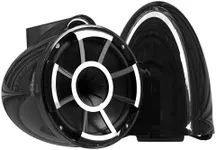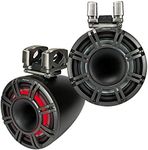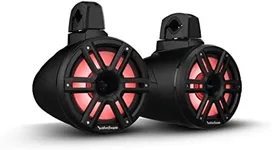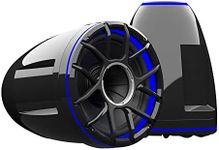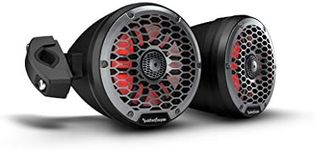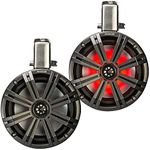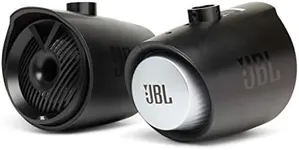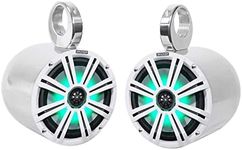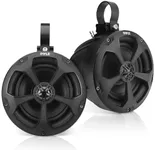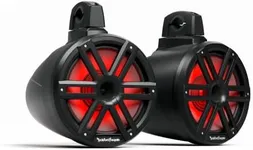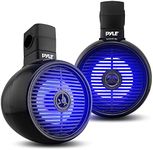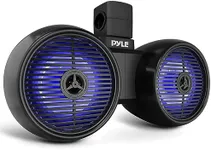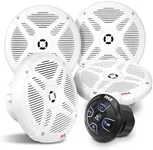Buying Guide for the Best Wake Tower Speakers
When it comes to picking the right wake tower speakers for your boat, it's important to consider several key specifications to ensure you get the best sound quality and durability for your needs. Wake tower speakers are designed to provide clear and powerful audio while you are out on the water, so understanding these specs will help you make an informed decision.Power HandlingPower handling refers to the amount of power (measured in watts) that the speakers can handle without being damaged. This is important because it determines how loud and clear the speakers can play music. Power handling is usually divided into two values: RMS (continuous power) and peak power. RMS is the amount of power the speaker can handle continuously, while peak power is the maximum power it can handle in short bursts. For most users, focusing on the RMS value is more important as it reflects the speaker's performance during regular use. If you enjoy loud music and have a powerful amplifier, look for speakers with higher RMS ratings. For casual listening, lower RMS ratings will suffice.
SensitivitySensitivity measures how efficiently a speaker converts power into sound, expressed in decibels (dB). Higher sensitivity means the speaker can produce more sound with less power. This is important because it affects how loud the speakers can get without requiring a lot of power. Sensitivity values typically range from 85 dB to 100 dB. If you have a lower-powered amplifier, look for speakers with higher sensitivity (90 dB or above) to ensure you get adequate volume. If you have a powerful amplifier, sensitivity is less critical, but higher values can still provide better performance.
Frequency ResponseFrequency response indicates the range of frequencies a speaker can reproduce, measured in Hertz (Hz). This is important because it affects the overall sound quality and how well the speakers can handle different types of music. A wider frequency response range means the speaker can produce both deep bass and high treble sounds. Typical frequency response ranges for wake tower speakers are from 20 Hz to 20,000 Hz. If you enjoy a variety of music genres, look for speakers with a wide frequency response. If you prefer bass-heavy music, pay attention to the lower end of the range.
Weather ResistanceWeather resistance refers to the speaker's ability to withstand exposure to water, sun, and other outdoor elements. This is crucial for wake tower speakers as they are constantly exposed to harsh marine environments. Look for speakers with high IP (Ingress Protection) ratings, which indicate their resistance to water and dust. An IP rating of IP65 or higher is ideal for marine use. Additionally, materials like UV-resistant cones and rust-proof grilles can enhance durability. If you frequently use your boat in saltwater environments, prioritize speakers with excellent weather resistance to ensure longevity.
Mounting OptionsMounting options refer to the ways in which the speakers can be installed on your wake tower. This is important because it affects the ease of installation and the stability of the speakers while the boat is in motion. Common mounting options include clamp mounts and swivel mounts. Clamp mounts are easy to install and provide a secure fit, while swivel mounts allow you to adjust the direction of the speakers for optimal sound projection. Consider the design of your wake tower and choose mounting options that are compatible and provide the flexibility you need for your setup.
